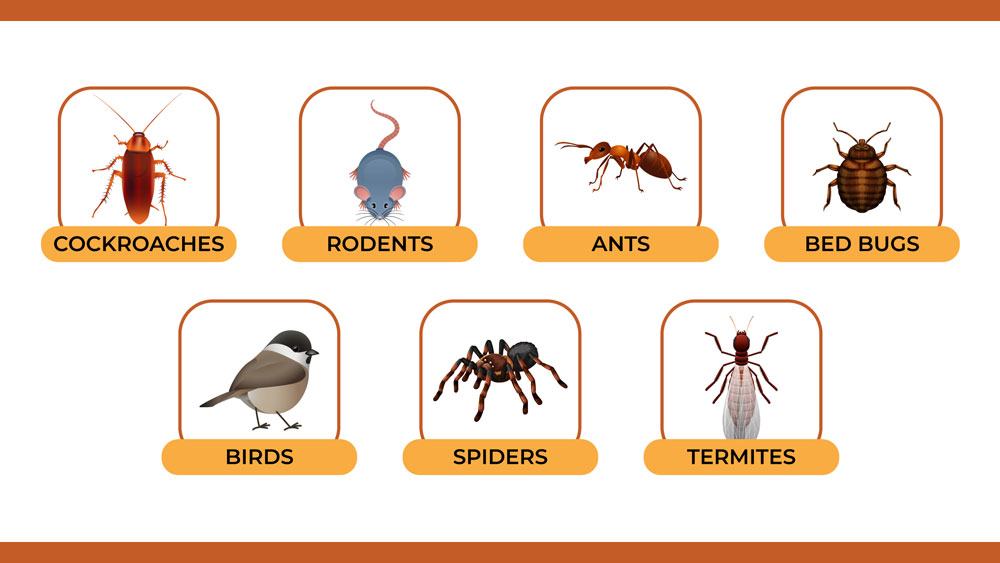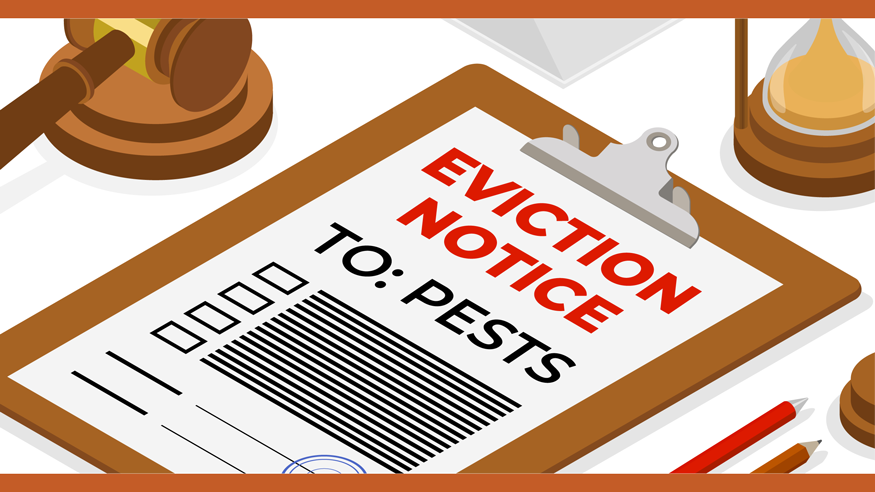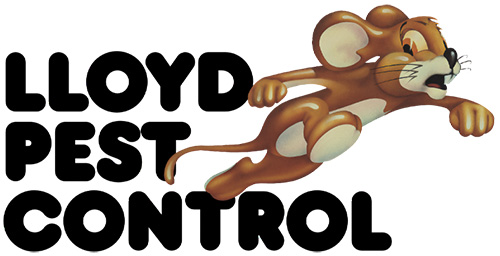Is a Landlord Responsible for Pest Control in California?
Pest Control and Extermination Tips
As a property owner or landlord in Southern California, few things are as bothersome as pest infestations in your buildings. From cockroaches infiltrating bathrooms to mice finding their way into kitchens, waiting until it’s too late to treat invading insects or ransacking rodents can cause unneeded stress and harm the health of your tenants—not to mention ruin your reputation and prevent new tenants from choosing your property in the future.
If you find yourself asking, “Is a landlord responsible for pest control?” it’s important to know that it depends upon the habitability of the property. Regardless of whether you own a multi-family property or a single-family home, California law requires landlords to keep their properties in livable condition. This means that you (with the help of your friendly pest control professionals at Lloyd) are responsible for ensuring adequate pest control is performed so your building remains habitable and your tenants stay safe.
So, just what exactly does California law state in terms of a landlord’s responsibility to prevent pests? And how can you ensure pests stay out of your property all year long? At Lloyd, our team of pest control professionals is here to help by weighing in on what types of pests gravitate toward rental properties, the lawful duties of property managers, and the importance of developing a proactive pest control plan from the get-go—both to ensure that your current tenants stay healthy and that your reputation doesn’t become tarnished.
Is a Landlord Responsible for Pest Control in California?
Yes. According to the California Department of Consumer Affairs, landlords or property managers must keep their buildings in livable condition. A current or ongoing pest infestation—including an infestation of rodents, insects, birds, or any other type of pest—will render your property uninhabitable. This means it’s your responsibility to handle all pest control initiatives (using the proper protocol as determined by a licensed pest control service) to ensure your living quarters are clean, healthy, and safe for all your tenants.
Tenant-Caused Pest Infestations

Even if a pest infestation takes place after your tenant has moved in, it is still your responsibility to ensure these pests are swiftly, safely, and thoroughly eliminated. This also includes infestations caused as a result of your tenant’s living conditions. Under this circumstance, however, the tenant can be held financially accountable for pest control services required to eliminate the infestation.
Pest Control Addendum
To avoid confusion about pest control responsibility between you and your renters, it’s important to have a pest control addendum in your rental agreement. Signed by both you and your tenants, this document will clearly identify what your obligations are should a pest infestation arise, as well as detail the steps you take to proactively prevent pests during their rental period.
This document should also detail the tenants’ financial responsibility for pest control services should there be proper evidence that their actions—including improperly disposed of food waste or secondhand furniture use—caused the problem.
What Types of Pests Can Infest Your Properties?

Whether you manage an apartment complex, an Airbnb, or a rental home, human-made shelters—and the people or pets that live inside them—will attract pests no matter how pristine they are. (Although, having a messy living space will certainly increase your chances of an infestation.) Many pests rely on us humans for survival, as we unintentionally provide them food sources, moisture-rich spaces, and a safe place to hide from predators as they propagate.
Pests that frequently invade California rental properties include:
While some of these property-crashing pests are considered a nuisance, others—such as roaches, rodents, bed bugs, and termites—pose a serious threat to your tenants’ health and to the infrastructure of your property.
What Can a Landlord Do to Prevent Pest Problems?

Proper, proactive pest control starts with prevention, especially in the case of preventing pests in rental properties. In order to ensure your property remains pest-free for tenants, a licensed pest control professional must inspect and treat your livable spaces regularly. Before a tenant moves in, a pest control technician should examine your property to identify problematic areas and apply any necessary pre-treatments. If an infestation is found, these pests must be eliminated prior to the scheduled move-in day.
If one of your current tenants is dealing with a pest infestation and has notified you or your management team, time is of the essence. Rather than having a member of your management staff waste valuable time and resources with DIY pest control solutions, our team at Lloyd can swoop in with professional pest control treatments and eliminate the problem at the source. With more than eight decades of experience treating pests in Southern California residential properties, we administer targeted strategies with fast-acting results.
A Partner in Pest Control You Can Trust
When you partner with Lloyd to handle your property management pest control needs, we do everything we can to ensure insects or rodents are eliminated promptly and that your living spaces (and tenants) remain pest-free with regularly scheduled follow-ups. In addition, we assign your property management company to a dedicated account team that ensures faster service response times as well as documentation and certification for compliance standards.
Keeping Your Business BrandSecure
From online reviews to word-of-mouth referrals, your reputation is of the utmost importance to our team at Lloyd. With BrandSecure, you’re able to remove your liability in the event of a future pest infestation on your properties.
100% Money-Back Guarantee for Property Managers
We guarantee our pest control services will get the job done. That’s why we’ll refund 100% of your service fees if we don’t deliver on our promise in 90 days.
Call Lloyd Today for Property Management Pest Control
When you manage rental properties in Southern California, keeping pests out of your living spaces is crucial for the health of your tenants and the infrastructure of your buildings. Rather than waiting until your renters are dealing with a pest infestation, it’s important to take a proactive approach to pest control initiatives from the get-go. With regularly scheduled pest control inspections from Lloyd, you can evict unwanted pests and prevent them from moving back in. Contact us today to put pests in their place!






